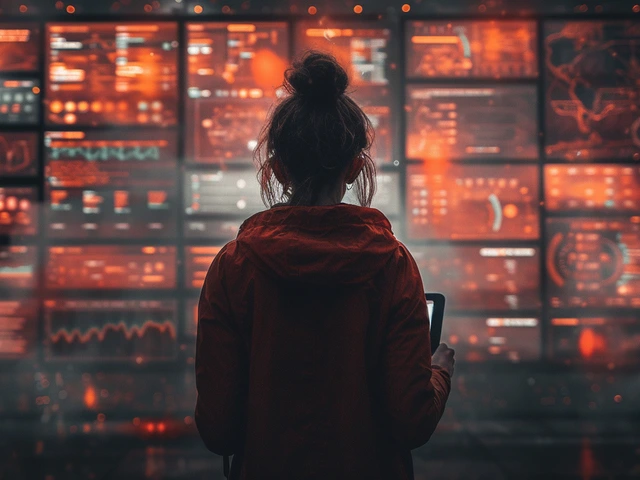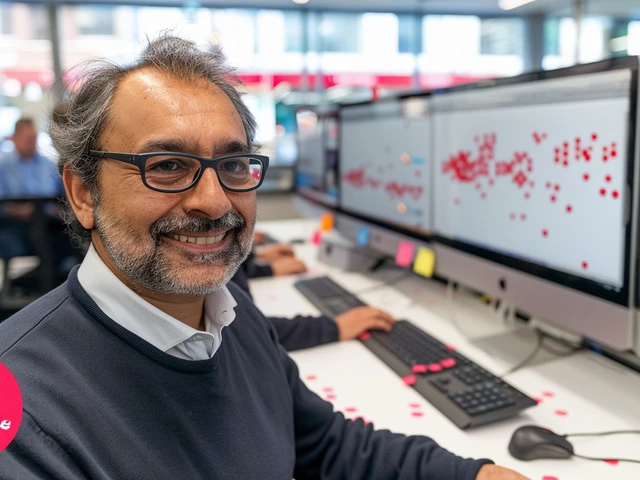Harnessing AI for Innovation in the Music Industry: Exploring Endless Possibilities

Harnessing AI for Innovation in the Music Industry: Exploring Endless Possibilities
Introduction to AI in the Music Industry
The music industry has always been a fertile ground for innovation, a place where art meets technology in the most exciting ways. Lately, there's been a buzz around a particular innovation that's promising to redefine how we create, distribute, and consume music. Yes, I'm talking about Artificial Intelligence (AI). The potential of AI in music is not just a topic of interest among tech enthusiasts and industry insiders; it's a burgeoning reality that's starting to transform the music landscape in profound ways.
From algorithms that can compose entire musical pieces to systems that analyze listener preferences to deliver custom-tailored playlists, AI is making its mark. But beyond these headline-grabbing applications, AI's integration into the music industry spans a broad spectrum of uses, from streamlining music production processes to revolutionizing how artists connect with fans. As we stand on the brink of this new era, it's worth exploring what AI can really offer to the music domain. Let's dive into the intricacies of these innovations and understand their potential impacts on artists, producers, and listeners alike.
The Evolution of Music Production With AI
There's something magical about the process of making music—it's an intricate dance of creativity, skill, and technology. In the past, the creation of music was often limited by technological constraints and the exclusivity of musical expertise. However, AI is democratizing music production, making it accessible to more people than ever before. Tools powered by AI are enabling individuals without formal music training to compose music, mix tracks, and even master their creations with a professional touch.
One notable example is the advent of AI-based music production software, which can assist or even lead the creation of melodies, harmonies, and rhythms. These tools are not just about automating the mundane aspects of music production; they're about augmenting the creative process, offering fresh perspectives and unforeseen inspirations. Yet, as these technologies evolve, they also raise questions about originality and the role of the human artist in the loop. It's a fascinating debate, one that touches on the very essence of creativity.
AI-Driven Music Discovery and Recommendation Systems
Remember the last time you discovered a song that perfectly matched your mood? Chances are, an AI was behind that serendipitous find. Music streaming services are increasingly relying on AI to understand listener preferences, analyze vast libraries of music, and deliver recommendations that feel personally curated. By processing data related to listening habits, social media interactions, and even the time of day, these algorithms can predict what listeners want to hear next, often with uncanny accuracy.
But AI's role in music discovery isn't just about convenience; it's about connection. By exposing listeners to a wider array of artists and genres, AI has the potential to break down barriers in the music landscape, giving rise to a more diverse and vibrant musical culture. However, balancing algorithmic recommendations with the discovery of new, lesser-known artists remains a challenge. Ensuring fairness and diversity in what gets recommended is crucial for the health of the industry and the richness of our musical experience.
Revolutionizing Royalties and Rights Management
In an industry where the question of who gets paid (and how much) has often been fraught, AI offers promising solutions. Managing music rights and distributing royalties in a digital age is no small feat. With countless streams across multiple platforms, tracking who owes what to whom is a complex puzzle. Enter AI, with its ability to sift through massive datasets and manage intricate transactions swiftly and accurately.
Blockchain technology, coupled with AI, is paving the way for more transparent and efficient rights management systems. Smart contracts can automatically execute payments based on streaming data, ensuring artists and rights holders are compensated fairly. While these technologies won't fix all the industry's monetary woes overnight, they represent significant steps towards a more equitable ecosystem for music creators.
Challenges and Ethical Considerations
With great potential comes great responsibility. As AI reshapes the music industry, it's essential to navigate the ethical minefields that accompany technological advancement. Issues of copyright infringement, for instance, become more complex when AI is involved in the creative process. Determining the copyright status of AI-generated compositions and ensuring fair compensation for human artists influenced by these creations are pressing concerns.
Moreover, as AI systems become more sophisticated, the risk of reinforcing existing biases in music recommendations and productions arises. Ensuring these technologies promote diversity and inclusivity rather than replicate systemic inequalities is critical. Addressing these challenges requires a deliberate and collaborative effort among technologists, artists, and industry stakeholders to steer AI's use in music toward a future that benefits all.
The Future of AI in the Music Industry
As we look to the future, it's clear that AI's role in the music industry is only set to grow. These technologies promise not only to enhance the way we experience music but also to expand what's possible in music creation and distribution. The collaboration between human creativity and AI could lead to new genres, new ways of engaging with music, and deeper connections between artists and audiences.
Yet, embracing AI in music is not without its challenges. Balancing technological innovation with ethical considerations, ensuring fairness in the industry, and preserving the human essence of music are all crucial as we move forward. But with mindful implementation and a focus on the potential benefits, AI could indeed herald a new and exciting chapter in the story of music.
About
CH Tech Development is a premier resource for the latest updates and insights in the world of technology development. We provide extensive information, articles, and guides on cutting-edge technological advancements. Explore our site to empower your knowledge about the dynamic field of tech development.
Latest Posts


Coding for AI: Pioneering Strategies in Tech Development
By Larissa Bentley Apr 25, 2024

Mastering Programming: The Ultimate Guide to Tech Success
By Theodore Worth Jan 18, 2024

PHP Coding Mastery: Advanced Techniques and Strategies for Developers
By Theodore Worth Feb 23, 2024

Write a comment